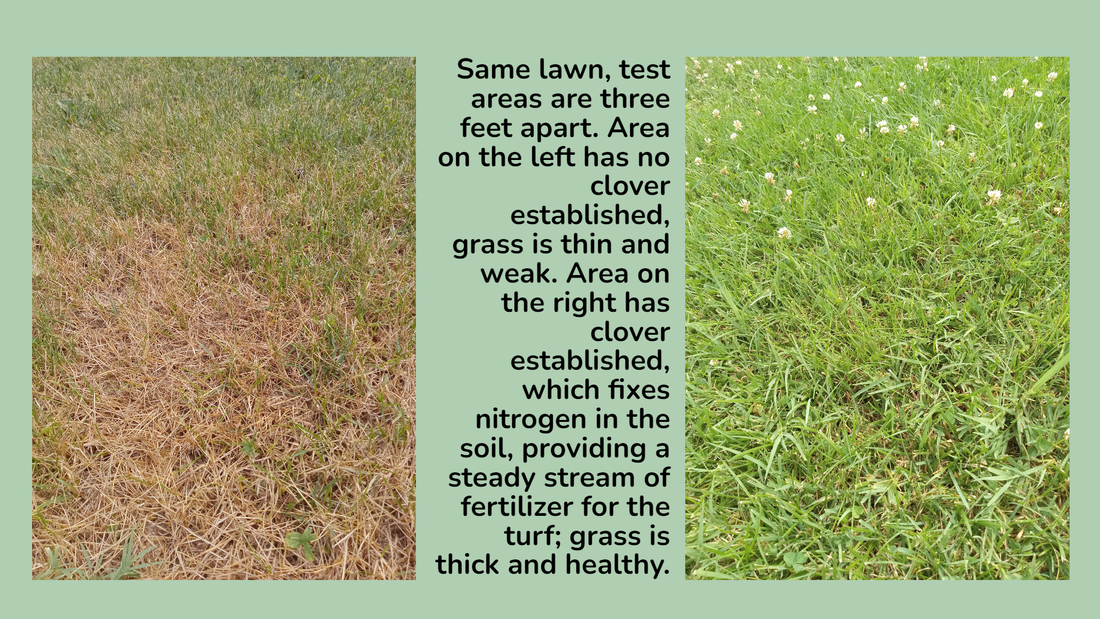|
At Good Sweet Earth, we're big fans of clover in lawns (see: here & here). It fills in gaps and keeps out less attractive weeds, it stays green all summer, it's great for pollinators, it's good in high-traffic areas, but one of the best parts is that it actually puts nitrogen into the soil. It provides fertilizer naturally for your lawn. From the University of Georgia Extension: Nitrogen is "fixed" in clovers through a symbiotic relationship with Rhizobium bacteria that infects the plant's roots. The plant provides energy for the bacteria, and bacteria provide the "machinery" necessary to convert atmospheric nitrogen into a form available to plants. Nitrogen fixation is one of many economically important features of clover, particularly when clover represents a substantial proportion of available forage. A vigorous stand of white clover will fix 100-150 pounds of nitrogen per year depending on soil and growing conditions But what does nitrogen fixing actually mean for your lawn? It means that in areas where you've got clover growing, your grass will be healthier too-- greener, thicker and stronger in drought conditions. Take a look at the lawn below where Dutch white clover is currently being established. The test sample on the right, with clover currently fixing nitrogen in the soil, shows shows thicker, greener turfgrass, even during the heat of summer months.
0 Comments
Your comment will be posted after it is approved.
Leave a Reply. |

